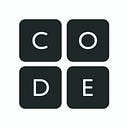As states and districts ramp up efforts to increase computer science offerings in schools, they often stop in their tracks and ask us, “but where do the teachers come from?” Good question.
Code.org has prepared teachers from every subject area to begin teaching computer science. And, we’ve seen first hand how many of them are eager and excited to teach this fundamental subject despite being certified in English, math, history, and other subject areas. So, why aren’t there more computer science teachers?
Looking for answers, we examined the state-by-state data on the number of graduates prepared to teach various subjects. We found that in 2016, only 75 teachers graduated from universities equipped to teach computer science. Compare that to the number of graduating teachers prepared in mathematics (12,528) and the sciences (11,917 across general science, biology, chemistry, physics, and earth science).
Not only are not enough teachers being trained, there are “chicken and egg” policies that are frustrating efforts to start teacher preparation programs in computer science. For example, to receive federal funds for these types of preparation programs, institutions must track certification test pass rates of students that complete the programs. Few states have clear paths to certification, which means no such tests exist to administer and track. To make matters worse, the Higher Education Act (which was last revised in 2008) has very few STEM programs, and zero that address teaching and learning computer science on college campuses.
Meanwhile, across the country, students are clamoring to get onto waitlists for Introduction to Computer Science courses. And the trend continues at the University of Washington. Computer science has rapidly become the first-choice major for incoming freshman between 2010 and 2017, and there’s no evidence of student’s interest slowing down.
We’re calling on states to support the creation and expansion of higher education programs to prepare teachers in computer science and to develop teacher certification pathways for computer science. Every state has clear pathways to certification for mathematics and science teachers, but only 29 states have similar policies for computer science teachers. To have computer science programs that are sustainable long term and to meet the demand for well-prepared teachers, it’s crucial to consider both state-level policies around certification as well as programs in teacher preparation.
Some universities are beginning to design programs to ensure there are enough prepared teachers; the University of Alabama is creating incentives for students majoring in secondary mathematics education to take two computer science courses, attend a College Board AP CSP Summer Institute, and teach computer science in their first year. More examples of ways that teacher preparation institutions can create or expand programs to prepare educators in computer science can be found in our Teacher Pathways Recommendations white paper.
Want to read more about how we got this data? You can see the numbers in this Google Sheet, or download the full file from the Higher Education Act Title II reports (2016).
